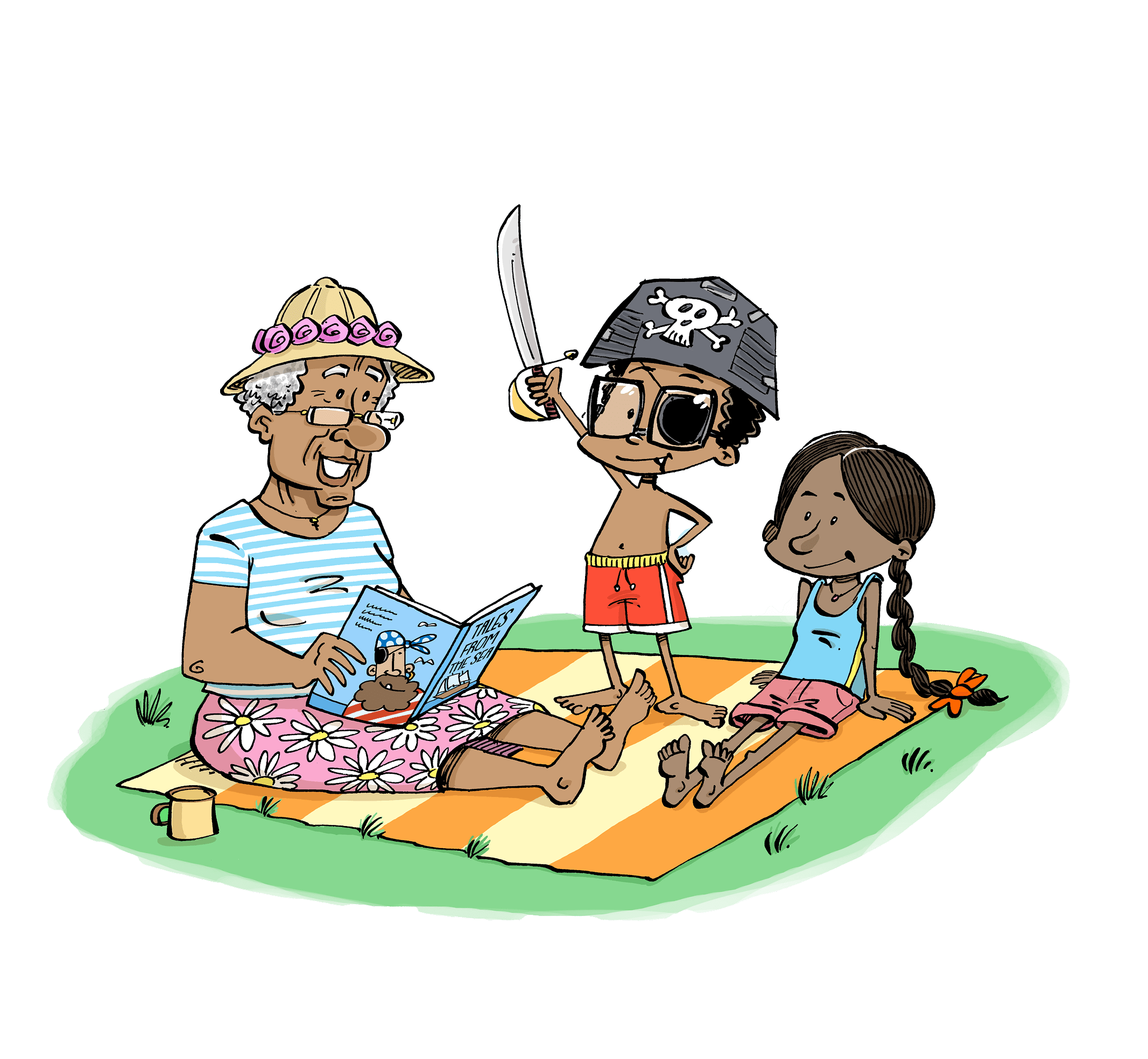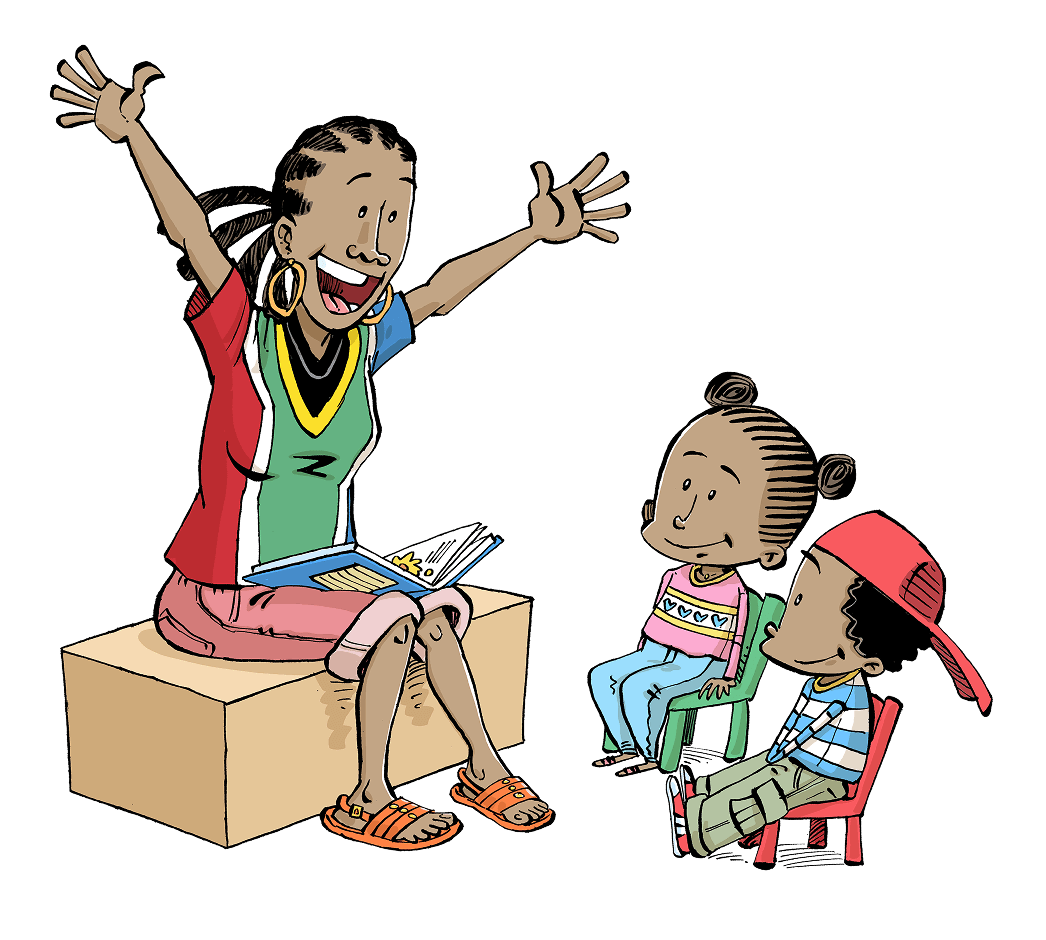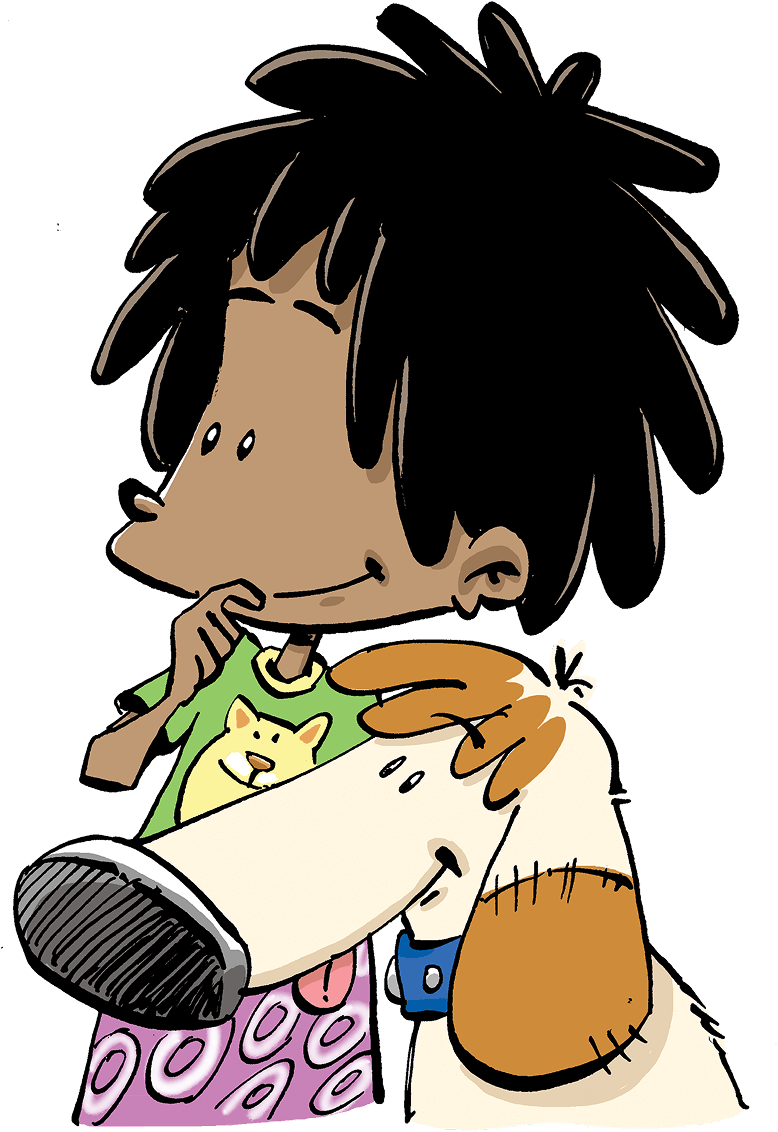Latest news
Browse our frequently-asked-questions section for more about children’s literacy in SA; Nal’ibali’s approach to language and literacy development; to who can be a part of the Nal’ibali reading-for-enjoyment campaign…

Put simply, literacy means reading and writing. But we all have different experiences of literacy – and when we talk about reading and writing, we can mean different things. We could be thinking about reading a story, writing a shopping list, filling in a tax form, reading a textbook, writing an SMS or email, checking the train timetable, following a recipe or flipping through the Sunday papers … the list goes on and on. And just as people have many purposes for reading and writing in their daily lives, there are also many languages in which they read and write. Literacy is about language too, but when many people think of literacy, they tend to think only of English. This doesn’t have to be the case. Reading and writing can happen in any language. And the more a language is used – be it in oral form or in writing – the more powerful it grows as its vocabulary and functions expand.
No country is without challenges in getting all children to become readers and writers. However, in most African settings, far too many children do not have access to books, or pencils and paper, let alone to digital technology. They also do not have the social, linguistic and other educational opportunities needed to make sense of the complexities of reading and writing – both inside and outside the classroom.
Systematic evaluations by the South African Department of Basic Education and the Progress in International Reading Literacy Study (PIRLS) provide stark evidence that huge numbers of children do not learn to read and write in primary school. In fact, in 2011, 53% of all Grade 3 children and 70% of all Grade 6 children scored less than 35% on the South African Annual National Assessment language test. Many of these children will grow up to be un-trainable as young adults in a society that requires a literate workforce. Fortunately, none of this is unsolvable. An abundance of international and local research exists to inform us that all children need experiences of books and stories as recreational activities to grow strong literacy foundations.
Learning to read and write has everything to do with meaning-making. You need to be able to understand the language in order to make sense of something that you are reading or to express something in writing. The children with the firmest foundations of literacy are young children who are part of families and communities where the people who care for them, and who they care about, engage regularly with print of various kinds. This may include things like overhearing adults talk about articles or books they have read, seeing adults and older siblings keen to read and write, being called to cuddle up and listen to a story, being helped with homework, being taken to a library or bookshop or being given a book as a gift … When you have reading and writing role models who help you to appreciate why reading and writing are powerful, you are more motivated to take up the challenge to start learning to read yourself … and to ask for help when you need it!
To help grow strong language and literacy foundations, Nal’ibali focuses mainly on children of pre- and primary school age. We know from recent research that the first five years are the most significant for brain development. And the experiences children have in their first three years are the most critical, as these early experiences provide the basis for the brain’s organisational development and functioning throughout life. So, whatever it is that parents and caregivers do with them, this is the time that young children establish their foundations for language and life. And the wonderful thing is that the best and most enjoyable way to support children’s learning in these early years – when they are learning more quickly than they’ll ever do again – is to widen their horizons by telling and reading them stories, letting them play and playing with them.
But we need to nurture a love of reading for enjoyment in our teenagers too. Reading clubs and groups can be wonderful spaces to connect with and make friends. They can also be spaces where interesting and inspiring adults become reading and writing role models. And, of course, many of the tricky and complex issues that teens and young adults have to deal with can be explored through appropriate books and stories.
In a democracy, people have the right to use the languages they know – not only for speaking and listening, but also for reading and writing. Support for multilingualism is enshrined in the South African Constitution. However, for most people in the country, this is not yet the case. And this is one of the most significant reasons that huge numbers of children, who speak one or more African languages at home, find learning to read and write so difficult. It is also the reason that so many adults have grown up without experiencing the joys of reading as children.
The power and potential of one’s mother tongue comes easily to English speakers and many Afrikaans speakers in South Africa, as does the fact that they can fill bookshelves at home and at school with storybooks for their youngsters to enjoy and learn from. African-language speakers across South Africa do not have this privilege. Nal’ibali promotes and supports reading for enjoyment in African languages as well as in English because everyone has the right to read and write in the language of their choice and we need to grow all of our languages equally. The more we create the kinds of storybooks South African children love – and in languages they understand – the greater chance we have that all our children will be literate.
Anyone can be a part of the Nal’ibali reading-for-enjoyment initiative! You don’t need unlimited time or resources – just the desire and enthusiasm to find ways of helping a child or a group of children to have regular time for playful and interesting storytelling and reading, in their home languages as well as English. Look at our values and guiding principles, and if you agree with them, help Nal’ibali to grow and succeed. Or visit our ‘Get involved’ section for the various ways you can get involved with the initiative, from starting your own reading club to following us on Facebook, Instagram and Twitter to pledge your support.
Newspaper Supplements can be found in the following Times Media titles (during term time only):
* Sunday Times Express (Western Cape): English and isiXhosa – Sundays.
* Sunday World (KwaZulu-Natal and Gauteng): English and isiZulu – Sundays.
* Sunday World (Free State): English and Sesotho – Sundays.
* Sunday World (Limpopo): English and Sepedi – Sundays.
* The Herald (Eastern Cape): English and isiXhosa – Thursdays.
* Daily Dispatch (Eastern Cape): English and isiXhosa – Tuesdays.
If you require and have the capacity to receive bulk deliveries of the Supplements for use in your reading club, school or organisation – and are based in the Eastern Cape, Western Cape, KwaZulu-Natal, Gauteng, Free State or Limpopo – please email supplements@nalibali.org
To arrange media interviews or request high-resolution images, email lucky@nalibali.org. For urgent deadline-related queries, contact the Nal’ibali Campaign Manager on +27 83 316 5501. As a member of the press, you can also visit our ‘Media enquiries’ section, where you will find our latest press releases and other useful resources.
We’d love to hear from you! Whatever your query is, there are various ways to contact us.

2 Dingle Avenue |Kenilworth | Cape Town 7708 | Western Cape
+27 (0)21 448 6000
Media Enquires >

©2024 Nal’ibali. All rights reserved. | Web Design by The Agency.